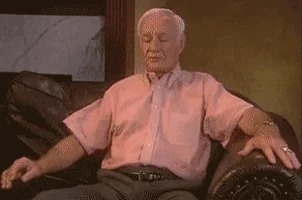Disciplines
from across University, community partners bring new perspectives to research
 Faculty,
staff and graduate students from a broad range of disciplines at the University
of Rhode Island are taking on one of society’s most vexing health challenges:
how to prevent or slow the onset of dementia through changes in diet and
exercise.
Faculty,
staff and graduate students from a broad range of disciplines at the University
of Rhode Island are taking on one of society’s most vexing health challenges:
how to prevent or slow the onset of dementia through changes in diet and
exercise.
What
sets the Lifestyle Interventions Group apart is its inclusion of disciplines
beyond the typical confines of brain science, as well as its engagement with
organizations, communities and individuals from around the state.
This holistic perspective expands and enriches avenues of investigation, with the objective of providing the scientific underpinnings to support practical changes in behavior that can improve people’s lives, said William Renehan, associate director of the George and Anne Ryan Institute for Neuroscience at URI and a founder of the group.
This holistic perspective expands and enriches avenues of investigation, with the objective of providing the scientific underpinnings to support practical changes in behavior that can improve people’s lives, said William Renehan, associate director of the George and Anne Ryan Institute for Neuroscience at URI and a founder of the group.
The
idea that simple changes in behavior could reduce the risk of developing
dementia intrigues Renehan, who noted that separate studies by the National
Institutes of Health and the Alzheimer’s Association looked at the role of
exercise and diet in the context of dementia and reached starkly different
conclusions.
Then Renehan learned of a small study by a Wake Forest University that delivered promising results.
“If this were a drug trial and the results were this impressive, it would be on the front page of the paper. But it got very little attention. Simple things don’t seem to resonate,” he said.
Then Renehan learned of a small study by a Wake Forest University that delivered promising results.
“If this were a drug trial and the results were this impressive, it would be on the front page of the paper. But it got very little attention. Simple things don’t seem to resonate,” he said.
So
Renehan embarked on his own review of the literature and discovered that
studies on diet and exercise were conducted without input from kinesiologists,
physical therapists, psychologists, nutritionists, gerontologists and others.
“There was an incredible variability in the measures and methods,” he said. “I thought: We have people at URI who have the skills and knowledge to do this research.”
“There was an incredible variability in the measures and methods,” he said. “I thought: We have people at URI who have the skills and knowledge to do this research.”
In
December2016, he and Catherine Taylor, a senior advisor for policy,
partnerships and community engagement at the Ryan Institute, announced the
group’s formation to the University community, and roughly 60 people from
diverse disciplines within the University’s Academic Health Collaborative and
beyond responded with interest.
“Everyone
is deeply curious about what everyone else knows,” Taylor said, noting that
academic practicalities often make it difficult to collaborate outside one’s
discipline. “Given this opportunity, people have embraced it.”
Experts
from various disciplines reviewed the research and shared their unique
perspectives. “That was incredibly valuable,” Renehan said. “We used those initial
meetings to identify gaps in the literature and what we can do to address
them.”
One
gap is the lack of proven, specific diet and exercise regimens that a health
practitioner can offer to a patient. “We are working toward a time when a
doctor can write a prescription for diet and exercise to slow progression or
prevent dementia,” Renehan said.
The
group gained momentum early on from the University’s Institute for Integrated
Health and Innovation, part of the Academic Health Collaborative, when it offered
small grants for proposals presented at a Big Ideas in Health forum. The Ryan
Institute added some of its own funding.
Among
these is a proposal by faculty from several departments within the College of
Health Sciences to examine changes in gait as a biomarker of cognitive decline.
These researchers also are tapping into resources at the Providence Veterans Administration Medical Center and Rhode Island Hospital.
The College’s Department of Nutrition and Food Sciences and the College of Business Administration are looking at ways to offer older adults incentives for healthy food purchases.
And the Colleges of Nursing, Health Sciences, Pharmacy and Engineering — as well as the Ryan Institute — are exploring the construction of a community for older adults adjacent to the University that would foster healthy living.
These researchers also are tapping into resources at the Providence Veterans Administration Medical Center and Rhode Island Hospital.
The College’s Department of Nutrition and Food Sciences and the College of Business Administration are looking at ways to offer older adults incentives for healthy food purchases.
And the Colleges of Nursing, Health Sciences, Pharmacy and Engineering — as well as the Ryan Institute — are exploring the construction of a community for older adults adjacent to the University that would foster healthy living.
The
group also is creating an online tool to assess public knowledge and
perceptions about brain health. This information will help guide education and
outreach efforts, Taylor said.
“We
want to equip families and physicians with a message of hope and an action
plan,” Renehan said. “There should be hope. There are things people can do to
reduce their risk of developing dementia.”